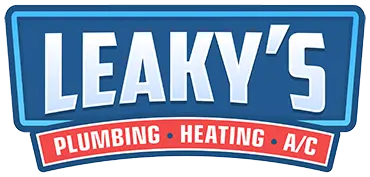Indoor Air Quality FAQs

Common Indoor Air Quality FAQs in Lubbock & San Antonio, TX
At Leaky’s Plumbing, Heating & A/C, we know that the air inside your home or business plays a crucial role in your health and comfort. As residents of Lubbock, TX, we understand the unique challenges posed by the climate and environmental factors in our area. From dust to allergens and humidity, maintaining good indoor air quality is essential. That's why we’ve compiled a list of the most frequently asked questions about indoor air quality (IAQ) and our expert HVAC services to help you keep your indoor air clean, safe, and comfortable.
1. What is indoor air quality, and why is it important?
Indoor air quality (IAQ) refers to the condition of the air inside a building, specifically the presence of pollutants, allergens, and moisture. Poor IAQ can lead to respiratory issues, allergies, and overall discomfort. Common pollutants include dust, mold, pet dander, tobacco smoke, and volatile organic compounds (VOCs) from cleaning products or furniture. Good indoor air quality is essential for maintaining a healthy and comfortable living environment. Ensuring proper ventilation, air filtration, and humidity control can significantly improve IAQ.
2. How can I improve indoor air quality in my home?
Improving indoor air quality involves several key actions. First, ensure your home is properly ventilated to allow fresh air to circulate and reduce the buildup of pollutants. Regularly changing air filters in your HVAC system is also crucial for trapping dust and other particles. You can also invest in air purifiers to remove allergens and contaminants from the air. Additionally, controlling humidity levels helps prevent the growth of mold and mildew, both of which can harm IAQ. Regular cleaning and reducing sources of indoor pollution are also effective strategies for improving air quality.
3. What are the most common indoor air quality problems in Lubbock, TX?
Lubbock's dry climate and dust storms can lead to a high accumulation of dust and airborne particles in your home. In addition, residents may deal with allergens such as pollen from local plants and seasonal weather changes. Humidity levels can fluctuate significantly in Lubbock, leading to potential mold and mildew growth if not managed properly. Indoor air pollutants from household items, such as cleaning products and furniture, can also degrade air quality. Keeping your HVAC system well-maintained and investing in an air filtration system can help combat these common issues.
4. How does air filtration improve indoor air quality?
Air filtration plays a critical role in maintaining healthy indoor air quality by removing particles and contaminants that can cause allergies and other health issues. High-efficiency particulate air (HEPA) filters are among the most effective at trapping small particles such as dust, pollen, and pet dander. Air purifiers and HVAC filters with high MERV ratings are designed to capture these harmful particles, improving the air you breathe. Regular maintenance and timely filter replacement are essential for maximizing the effectiveness of your air filtration system.
5. What type of air filter is best for my home in Lubbock?
In Lubbock, where dust and airborne particles can accumulate quickly, a high-efficiency air filter is ideal. We recommend filters with a Minimum Efficiency Reporting Value (MERV) rating of at least 8-13 for residential properties. The higher the MERV rating, the better the filter will capture smaller particles. HEPA filters, in particular, are excellent for trapping even the tiniest allergens, such as pollen and pet dander. Consulting with an HVAC professional, like Leaky’s Plumbing, Heating & A/C, can help determine the best filter for your specific needs and HVAC system.
6. How can humidity control impact indoor air quality?
Humidity control is essential for maintaining indoor air quality. Excess humidity can lead to mold and mildew growth, while low humidity can cause respiratory discomfort and dry skin. A dehumidifier can help reduce excess moisture in the air, particularly in areas like bathrooms or basements where humidity tends to be higher. On the other hand, using a humidifier can add moisture to dry indoor air during the winter months, preventing issues like dry throat, irritated sinuses, and static electricity. Keeping humidity levels between 30-50% is ideal for comfort and air quality.
7. How does my HVAC system affect indoor air quality?
Your HVAC system plays a significant role in controlling indoor air quality by circulating air throughout your home. A well-maintained HVAC system with clean air filters helps ensure that airborne particles are effectively trapped and removed. Regular maintenance, including cleaning ducts and replacing filters, can prevent dust, allergens, and other pollutants from accumulating inside the system. Additionally, installing a UV air purifier or a whole-home air cleaner can help eliminate bacteria, viruses, and mold, further improving IAQ.
8. Can air purifiers improve indoor air quality in Lubbock?
Yes, air purifiers can significantly improve indoor air quality in Lubbock, especially in areas where dust, pollen, and allergens are common. A high-quality air purifier with a HEPA filter can remove fine particles, including dust, pet dander, and pollen, providing cleaner air to breathe. Air purifiers are especially beneficial for households with asthma or allergies. When selecting an air purifier, it's important to choose one that is appropriately sized for the room and ensure regular filter changes for optimal performance.
9. What are the signs of poor indoor air quality?
Signs of poor indoor air quality can include persistent allergies, coughing, or sneezing, headaches, fatigue, dry skin, or irritated eyes. If you notice that your symptoms worsen when you're indoors or you frequently experience respiratory discomfort, your indoor air quality may be compromised. Visible mold growth, dust buildup, or unpleasant odors can also be signs of poor air quality. If you suspect issues with your air quality, it’s advisable to have a professional HVAC technician inspect your system and air quality levels.
10. How often should I replace my HVAC system's air filter?
The frequency of air filter replacement depends on several factors, including the type of filter, the size of your home, and the level of pollution in your area. Generally, it’s recommended to replace standard filters every 1-3 months. Homes with pets, smokers, or higher pollution levels may require more frequent changes. Checking your filter every month and replacing it when it appears dirty or clogged is a good practice. Regularly changing your air filter ensures your HVAC system runs efficiently and helps maintain indoor air quality.
11. What is a UV air purifier, and how does it help improve indoor air quality?
A UV air purifier uses ultraviolet light to kill bacteria, viruses, and mold spores in the air, effectively improving indoor air quality. When installed within your HVAC system, the UV light works continuously to neutralize harmful microorganisms before they circulate through your home. UV air purifiers are particularly beneficial for households with respiratory issues or those concerned about air contamination. This system works alongside other air cleaning methods like filtration to provide a comprehensive solution for cleaner air.
12. Are there any health risks associated with poor indoor air quality?
Poor indoor air quality can cause a range of health issues, particularly for individuals with asthma, allergies, or other respiratory conditions. Long-term exposure to pollutants like dust, pet dander, mold, and VOCs can lead to chronic respiratory problems, including asthma attacks, coughing, and shortness of breath. Even for healthy individuals, poor air quality can result in discomfort, fatigue, and headaches. Improving your indoor air quality is an essential step in promoting better overall health and wellness for you and your family.
13. Can plants help improve indoor air quality?
Yes, certain houseplants can improve indoor air quality by absorbing toxins and releasing oxygen. Plants like spider plants, peace lilies, and snake plants are known for their air-purifying properties. While plants can certainly supplement your air quality efforts, they should not be relied upon as the sole method for improving air quality. For the best results, combine indoor plants with a high-quality air filtration system and proper ventilation to create a healthier environment.
14. How does outdoor air quality affect my indoor air quality?
Outdoor air quality directly impacts indoor air quality, especially if your home is not properly sealed or ventilated. Pollutants like pollen, smog, and vehicle emissions can enter your home through open windows, doors, and ventilation systems. To minimize the impact of outdoor pollutants, ensure that your HVAC system has a good filtration system, and consider using air purifiers to reduce the influx of outdoor allergens. During times of high outdoor pollution, you may also want to limit opening windows to keep your indoor air clean.
15. Can I improve indoor air quality without professional help?
While there are steps you can take to improve indoor air quality on your own, such as using air purifiers, cleaning regularly, and maintaining your HVAC system, professional help is often necessary for optimal results. A professional HVAC technician can assess your system, perform air quality tests, and recommend advanced solutions like air filtration upgrades, duct cleaning, or UV purifiers. Investing in professional indoor air quality services ensures that your home is free from hidden pollutants and that your HVAC system is running efficiently.
Contact Leaky’s Plumbing, Heating & A/C For Answers To All Your Indoor Air Quality FAQs
If you have more questions or need expert assistance with your indoor air quality, don’t hesitate to reach out to Leaky’s Plumbing, Heating & A/C. Our knowledgeable technicians are here to provide personalized solutions tailored to your home and business. We offer reliable indoor air quality services in Lubbock, TX, including air filtration, humidity control, and UV air purification. Call us today at (806) 454-9688 or visit our website to learn more and schedule an appointment.
